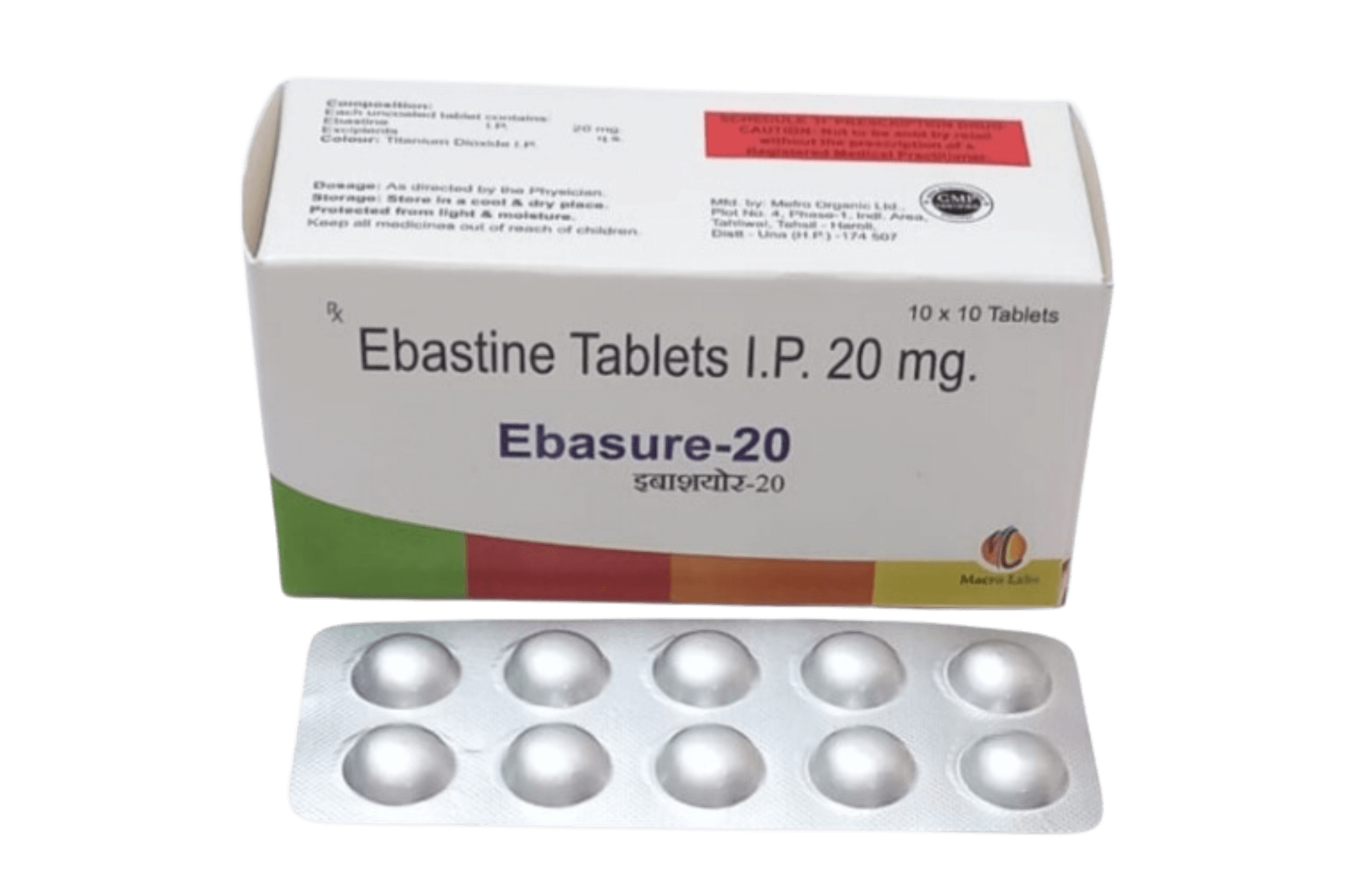Ebasitine (generic name: ebastine) is a
second-generation antihistamine used to treat various
allergic conditions. It effectively alleviates symptoms such as
sneezing,
runny nose,
itching, and
watery eyes associated with
allergic rhinitis and
chronic idiopathic urticaria (hives).
As a
non-sedating antihistamine, ebastine selectively inhibits peripheral H1 receptors, reducing allergic responses
without causing significant drowsiness. Its efficacy in managing
nasal allergy symptoms and
allergic skin conditions makes it a good choice for patients seeking relief from allergic reactions.
Dosage
The dosage and administration schedule is set by the prescribing doctor. The usual regimen is:
- Adults and Adolescents (12 years and older):
- Allergic Rhinitis: 10 mg once daily.
- Chronic Idiopathic Urticaria (chronic hives): 10 mg once daily; in severe cases, the dose may be increased to 20 mg daily.
- Children (6 to 11 years):
By blocking histamine receptors, ebastine effectively reduces these allergic symptoms, improving patient comfort and quality of life.
Ebastine tablets should be swallowed whole with water and can be taken with or without food. To maintain consistent blood levels, the medication should be taken at the same time each day. If a dose is missed, take it as soon as you remember unless it’s near the time for the next dose; do not double-dose to make up for a missed dose. Consult a healthcare provider before making any changes to the prescribed dosage.
Storage
Store Ebastine in a cool, dry place away from direct sunlight and moisture. Keep the medication out of reach of children. Get more advice about safe drug storage here.
Common Questions About Ebastine
Can Ebastine be taken with other medications?
It’s important to inform your healthcare provider about all medications you’re taking, including over-the-counter drugs and supplements, to avoid potential interactions.
How quickly does Ebastine start working?
Ebastine typically begins to relieve symptoms within 1 to 3 hours after ingestion, with effects lasting up to 24 hours.
Is Ebastine suitable for long-term use?
Ebastine can be used for both short-term and long-term management of allergic conditions as directed by a healthcare provider.
This text is for informational purposes only. Please consult a doctor or pharmacist before using any medication.
Read the information leaflet that comes with the medication.
Most people who use Ebastine do not experience any adverse side effects. Doctors prescribe this medication because they assess the benefits of such treatment outweigh any likely unwanted effects.
Some of the side effects that have been reported include headaches, dry mouth, and drowsiness. Occasionally, people have reported feeling abdominal pain, indigestion, and nausea.
Not all side effects are listed here. If these or other unlisted symptoms persist or worsen, consult a healthcare provider or pharmacist.
Ebastine is indicated for the treatment of:
- Allergic Rhinitis, which results in symptoms like sneezing, runny nose, nasal congestion, itching, and watery eyes. These symptoms result from exposure to allergens like pollen, dust mites, or pet dander.
- Chronic Idiopathic Urticaria, a condition presenting as persistent hives with itching and redness without an identifiable cause. Ebastine helps alleviate the itching and reduces the appearance of hives.













